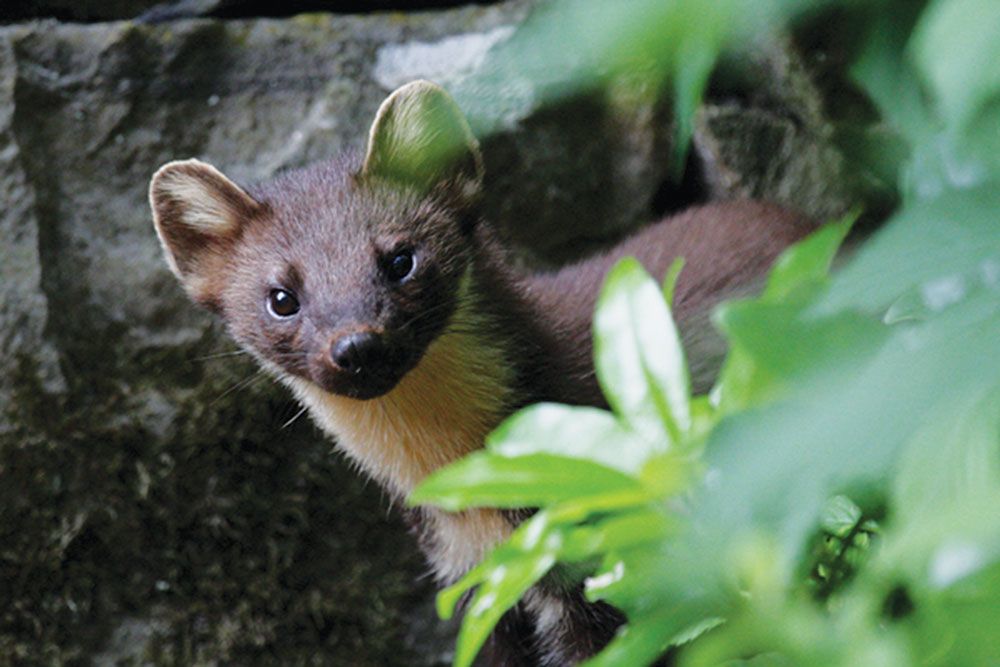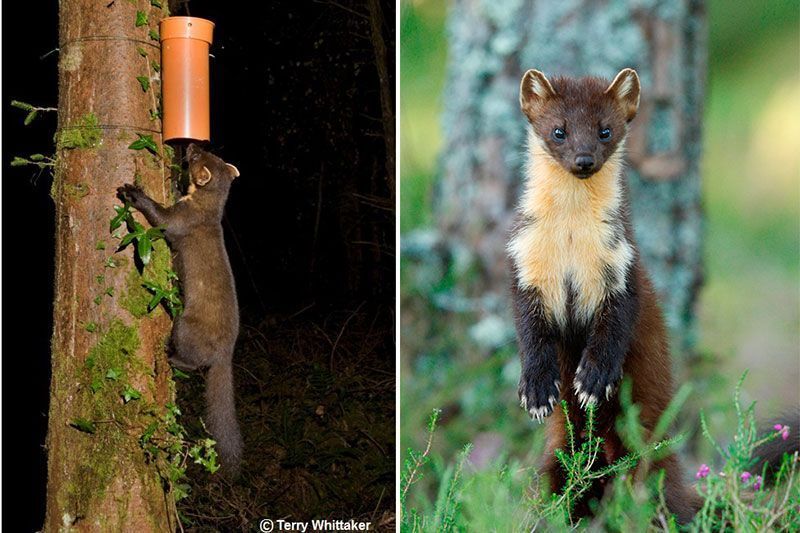Reintroducing and monitoring pine martens in Wales

Genetic monitoring can help us learn a lot about the newly introduced pine martens in Wales today
Funding for this project has now finished
The problem
Until recently pine martens have only been found in Scotland and Northern Ireland, with no sustainable populations in England and Wales. However, in 2015, PTES became one of the major funders for the Vincent Wildlife Trust-led project. This brilliant project successfully translocated 51 pine martens from Scotland to mid-Wales. These pine martens are now established in the Welsh countryside and the females have had kits each year since. During this time we have been able to monitor the animals using camera traps but now to really understand how well the population is doing we have to look at the genetic make-up of the animals.
The solution
Genetic monitoring can help us learn a lot about the pine martens in Wales today. It enables us to gain an understanding of how many animals there are, how genetically diverse the group is and how many of the original translocated animals have contributed their genes to this new population. PTES is providing funds to a team at the Waterford Institute of Technology (WIT) to investigate further. Over a four week period, fur and scat samples will be collected from the release site and areas around that the animals have colonised. Hair tubes are placed in key areas and baited with chicken; any inquisitive pine marten leaves a small hair sample after entering the tube. Scats will also be collected from footpaths in the same area.

These samples will be genotyped by the Molecular Ecology Research Group at WIT. This means each sample can be identified down to an individual level. Then, any similarities in genes between individuals will enable the team to build up a picture of how related all the pine martens in the population are. The results will also help us identify problems such as skewed breeding success and inbreeding. The release of pine martens back into the Welsh countryside has been a huge success; this work will give us extra valuable information to help these animals thrive into the future.
Thank you to all our donors who helped us fund this work. You can help us support more projects like this with a donation today:
